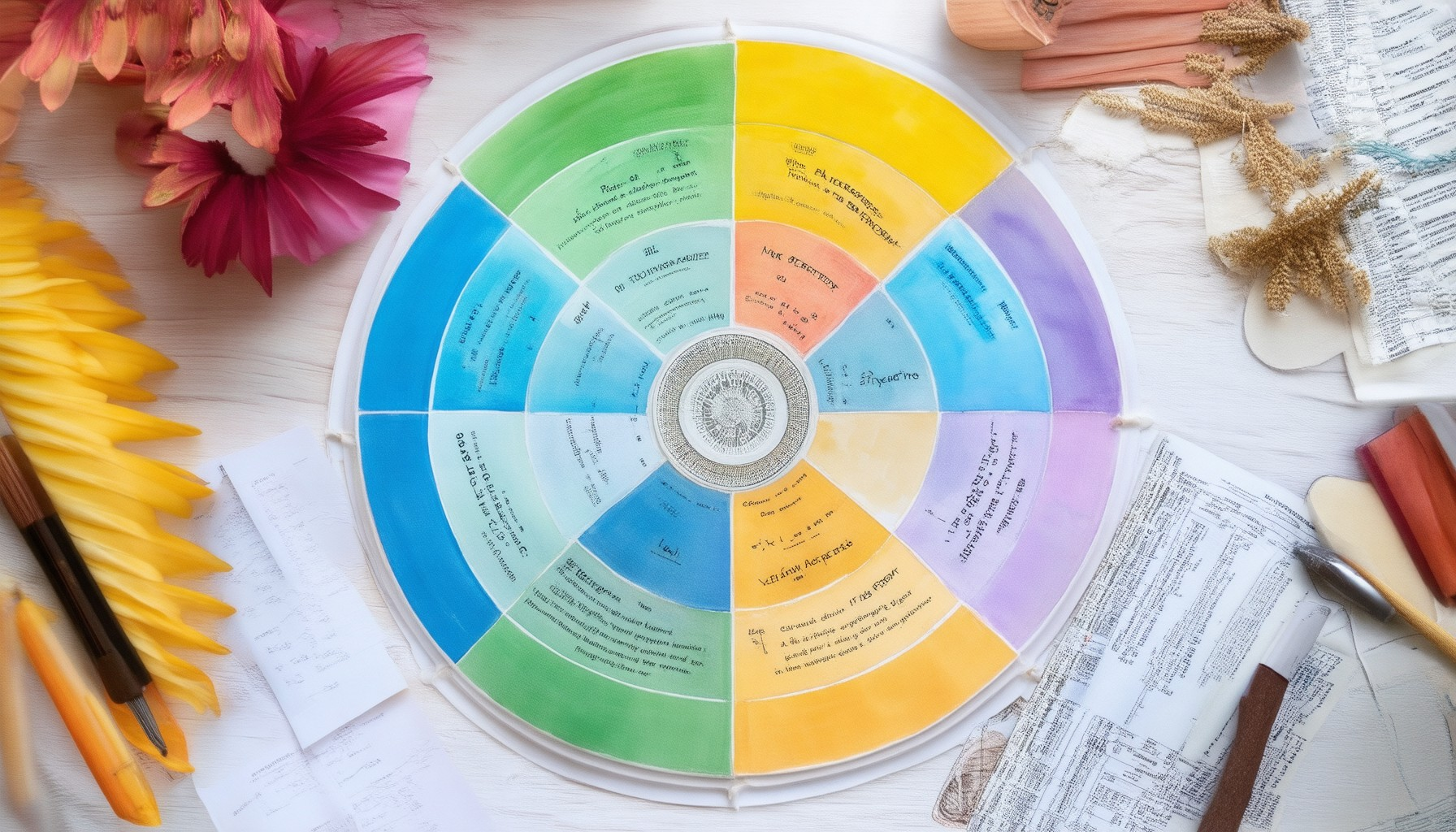Balancing a demanding career with personal well-being can feel like an impossible feat in today’s fast-paced world. However, prioritizing self-care is not just a luxury—it’s a cornerstone of sustainable success and overall life satisfaction. With the right strategies, anyone can achieve harmony between professional responsibilities and personal fulfillment. Whether you’re aiming to reduce stress, enhance productivity, or simply find joy in daily life, adopting effective self-care practices is key to long-term happiness and success.
Key Takeaways
- **Prioritize Personal Growth**: Invest in activities that enhance emotional, mental, and spiritual well-being through hobbies, learning, and mindfulness.
- **Cultivate Healthy Relationships**: Build supportive connections with inspiring individuals to strengthen your social bonds.
- **Practice Gratitude Daily**: Reflect on positive aspects of life to boost happiness and mental health through journaling or simple reflections.
- **Golden Rule of Self-Care**: Treat yourself with kindness and respect, balancing your own well-being with the needs of others.
- **Set Boundaries**: Protect your mental, emotional, and physical health by knowing when to say no and prioritize self-care.
- **Be Present and Engaged**: Focus on living fully, embracing your experiences to foster personal growth and satisfaction.
- **Avoid Burnout**: Ensure adequate rest and downtime to prevent exhaustion and maintain productivity.
- **Don’t Neglect Responsibilities**: Manage tasks efficiently to reduce stress and avoid overwork, ensuring important duties are met.
- **Recognize Emotional Cues**: Pay attention to health warnings and emotional signals to address issues early and prevent escalation.
- **Manage Time Effectively**: Use organizational tools like calendars and to-do lists to reduce chaos and stress.
- **Seek Support When Needed**: Engage with trusted friends or professionals to overcome challenges and find solutions.
- **Embrace Imperfection**: Understand that progress is natural and aim for personal growth rather than perfection.
The 7 Pillars of Self-Care
- Physical Health
- Regular exercise
- Adequate nutrition
- Quality sleep
- Hydration
- Stress management
- Emotional Well-being
- Mental health awareness
- Stress reduction techniques
- Building resilience
- Finding balance
- Social and Relational Health
- Healthy relationships
- Strong communication
- Supportive community
- Positive social interactions
- Intellectual and Creative Health
- Lifelong learning
- Creative expression
- Curiosity and exploration
- Problem-solving skills
- Financial Stability
- Financial planning
- Debt management
- Economic security
- Financial independence
- Spiritual or Existential Health
- Meaning and purpose
- Inner peace
- Connection to values
- Seeking fulfillment
- Environmental Health
- Sustainable living
- Reducing harm
- Environmental awareness
- Harmony with nature
What Are 5 Self-Care Strategies?
-
1. Prioritize Regular Exercise
I make sure to incorporate regular physical activity into my routine. Whether it’s a daily walk, yoga session, or strength training, moving my body helps clear my mind and boost my energy levels.
-
2. Practice Balanced Nutrition
I focus on eating a variety of nutrient-rich foods, including fruits, vegetables, lean proteins, and whole grains. Eating well fuels my body and mind, supporting overall well-being.
-
3. Engage in Mindfulness Practices
I dedicate time each day to mindfulness activities like meditation or deep breathing exercises. These practices help me stay grounded and manage stress effectively.
-
4. Maintain Quality Sleep Hygiene
I ensure I get enough quality sleep by establishing a consistent bedtime routine and creating a relaxing sleep environment. Sleep is essential for recovery and cognitive function.
-
5. Foster Meaningful Social Connections
I actively work on building and maintaining strong relationships with loved ones. Spending time with friends and family or engaging in community activities adds joy and support to my life.
I believe these strategies contribute significantly to my emotional, mental, and physical well-being. By focusing on self-care, I can better navigate life’s challenges and embrace opportunities for growth.
Learn more about personal development tools and resources
How to Balance Work Life and Self-Care?
Balancing work life and self-care requires intentional effort and mindfulness. Here are proven strategies to help you achieve this equilibrium:
- Set Clear Boundaries – Define work hours and commit to sticking to them. Avoid checking emails outside of work hours and resist the urge to take work home unless absolutely necessary.
- Prioritize Self-Care – Schedule regular moments for yourself, whether it’s a quick meditation session, a walk, or simply relaxing with a book. Consistency is key.
- Practice Time Management – Use productivity tools and techniques to maximize efficiency during work hours, allowing you to free up time for personal activities.
- Stay Organized – Maintain a planner or digital calendar to track important events, deadlines, and personal commitments. This helps in managing time effectively.
- Engage in Hobbies – Dedicate time to activities you enjoy, such as sports, art, music, or reading. Hobbies provide mental relaxation and stress relief.
- Become Mindful – Practice mindfulness or meditation to stay grounded and reduce stress. This can significantly improve your overall well-being.
- Connect with Others – Build strong social connections and maintain healthy relationships. Spending time with loved ones can provide emotional support and joy.
- Avoid Overwork – Learn to say no when necessary and delegate tasks to others. Overworking can lead to burnout and negatively impact your health.
By implementing these strategies, you can create a harmonious balance between your professional and personal life, leading to greater job satisfaction and personal fulfillment.
What Are the 3 Rules of Self-Care?
-
Prioritize Personal Growth
Invest time in activities that foster your emotional, mental, and spiritual well-being. Engage in hobbies, pursue learning opportunities, or practice mindfulness to enhance your overall quality of life.
-
Cultivate Healthy Relationships
Build and maintain connections with supportive individuals who inspire and motivate you. Communicate openly and offer encouragement to strengthen your bonds.
-
Practice Gratitude Daily
Take a moment each day to reflect on the positive aspects of your life. Journaling or simply noting a few things you’re grateful for can significantly boost your happiness and mental health.
The Golden Rule of Self-Care
The golden rule of self-care is a principle that emphasizes treating yourself with the same level of kindness, compassion, and respect that you would extend to others. It’s about recognizing that you deserve care, support, and love, just as much as anyone else does. This doesn’t mean being selfish or neglectful of others—it’s about balancing your own well-being with the needs of those around you.
Key Principles of the Golden Rule for Self-Care
- Treat yourself with compassion and understanding.
- Be present and engaged in your own life.
- Set boundaries to protect your mental, emotional, and physical health.
- Practice gratitude for the things you do well and the progress you’ve made.
Benefits of Applying the Golden Rule to Self-Care
- Improved mental and emotional well-being.
- Increased self-esteem and confidence.
- Better relationships with others.
- Reduced stress and anxiety.
- Enhanced productivity and creativity.
Challenges to Overcome
- Overcoming self-criticism and negative thoughts.
- Learning to say no when needed.
- Staying consistent in self-care practices.
How to Practice the Golden Rule Daily
- Start your day with positive affirmations.
- Engage in activities that bring you joy and fulfillment.
- Be patient with yourself during difficult moments.
- Seek support when you need it, whether from friends, family, or professionals.
Resources for Further Exploration
You can explore more about self-care and personal development through our comprehensive guides and articles on Chris and One . Our platform offers actionable insights and practical tips to help you thrive in all areas of your life.
What Should You Avoid in Self-Care?
Self-care is essential for maintaining mental and physical well-being, but there are common pitfalls to avoid:
Common Self-Care Mistakes
- Burnout: Overworking or neglecting rest leads to exhaustion and decreased productivity. Prioritize downtime and adequate sleep.
- Neglecting Responsibilities: Skipping important tasks can escalate stress and create more work later. Stay organized and focused.
- Ignoring Red Flags: Dismissing health warnings or emotional cues can worsen issues. Pay attention to your body and emotions.
Overworking and Overcommitment
- Setting unrealistic goals can lead to frustration and imbalance. Break tasks into manageable steps.
- Ignoring boundaries allows others’ demands to overwhelm you. Communicate your limits effectively.
Poor Time Management
- Failing to plan creates chaos and stress. Use tools like calendars and to-do lists for better control.
- Procrastination delays progress and increases anxiety. Start small and stay consistent.
Neglecting Mental Health
- Ignoring emotional needs can lead to depression or anxiety. Engage in activities that bring joy and fulfillment.
- Not seeking support when needed isolates you further. Reach out to trusted friends or professionals when struggling.
Unrealistic Expectations
- Comparing yourself to others creates unnecessary pressure. Focus on your own journey and progress.
- Expecting perfection sets you up for failure. Embrace imperfection as part of the learning process.
Conclusion
Avoiding these self-care pitfalls requires intentional effort and self-awareness. By prioritizing your well-being, you create a foundation for lasting happiness and success. Remember, self-care isn’t selfish—it’s essential for thriving.
For more insights and practical tips, visit our resource hub and explore our guided programs designed to help you excel in self-improvement and relationships.









0 Comments